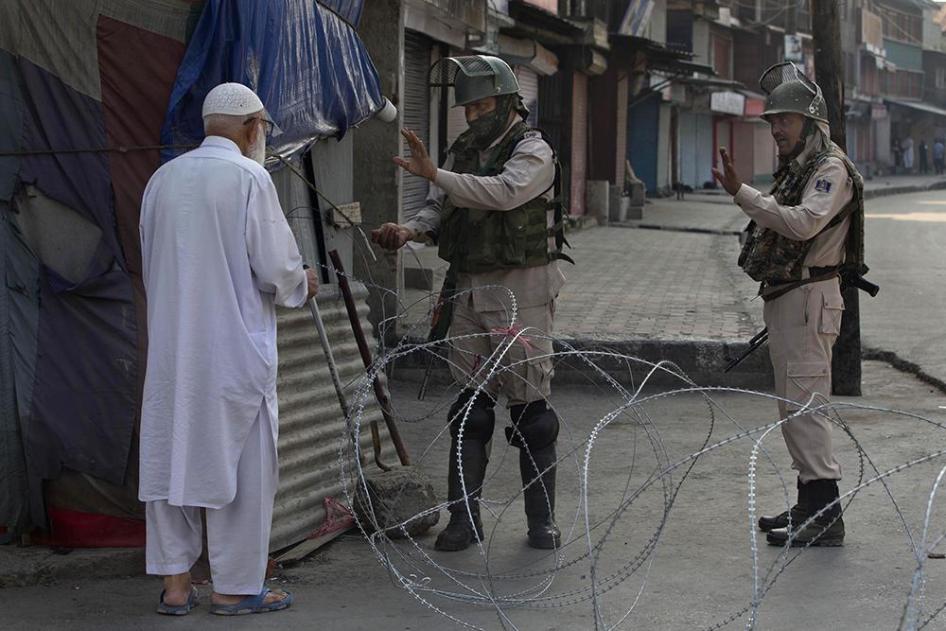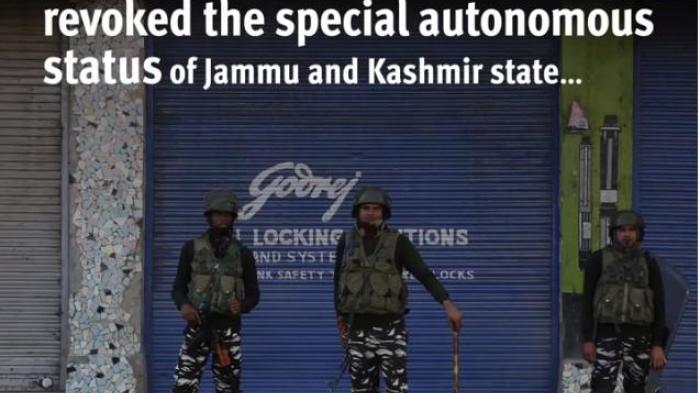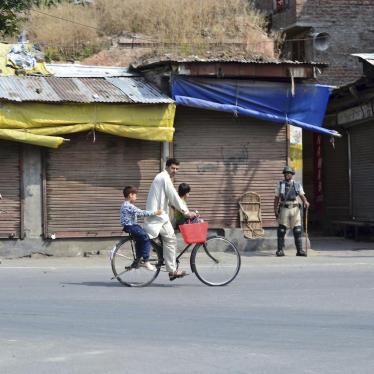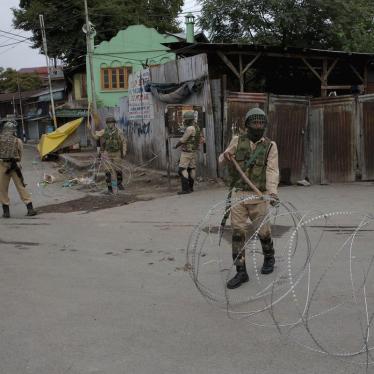Proportionate Restrictions
International law permits government restrictions on certain rights for national security and public order. But they must be necessary and proportionate to the legitimate aims pursued.
The government is gradually lifting some restrictions, but internet and mobile phones remain shut down. India has the dubious distinction of having the largest number of internet shutdowns in the world, and more than half of those are in Kashmir. It is a disproportionate response, and a form of “collective punishment” that cripples daily lives and economic activities. It has become a significant tool of censorship under the guise of security in many countries, as the United Nations has noted.
Shutting down communications also fuels allegations of misinformation, leaving no capacity for independent verification of alleged human rights abuses. The authorities have sought to deny protests, generating public distrust. Protesters have taken to holding placards with the day’s date to prevent denials.
The authorities have detained hundreds of people, including many political leaders and activists, and by one account even children. There are unconfirmed reports that thousands may have been held under the Public Safety Act, a controversial law that allows detention for up to two years without charge or trial. The government has acknowledged a “few preventive detentions” but should periodically release lists of those detained, inform families of their whereabouts and ensure that detainees have proper access to their families and legal counsel.
‘New Kashmir’
Prime Minister Narendra Modi has spoken of a “new Kashmir” where there will be development, jobs, investment and prosperity. But in those promises to Kashmiris, there is silence on justice and accountability for people who have suffered decades of grave human rights violations by the security forces, including torture, enforced disappearances, and extrajudicial killings.
For instance, successive Indian governments have ignored the call of the government’s own expert committees to repeal the Armed Forces (Special Powers) Act, which provides effective immunity to abusive security personnel. Even the army has admitted that the extraordinary powers to use lethal force have led to “mistakes”, which inflame public passions and fuel the cycle of violence.
Already, there are reports of protests in Srinagar. Considering that it had anticipated public hostility and thus imposed restrictions, the government should make serious efforts to communicate with those protesting. Authorities should ensure that security forces act with restraint. And protest organisers should also take steps to deter their supporters from committing violence against members of the public and law enforcement officers.
International observers who have long admired India’s democracy have expressed shock over the government’s actions in Kashmir, where people are unable to move freely, properly access emergency services or medical care, and communicate or express themselves. Indians may agree or disagree with the government’s decision on the status of Jammu and Kashmir, but they should speak in one voice when it comes to upholding civil liberties.











